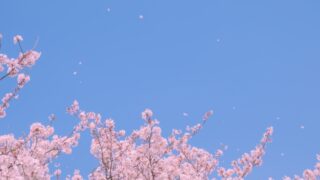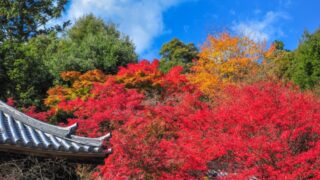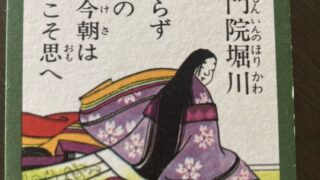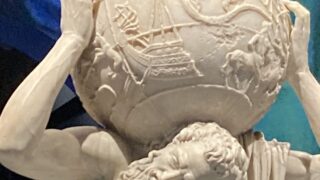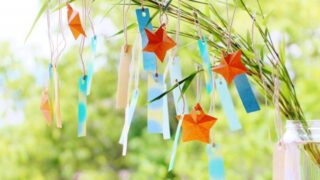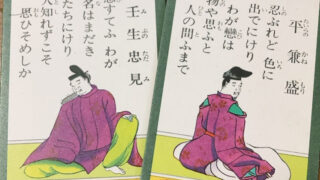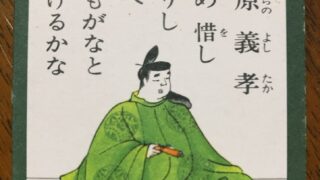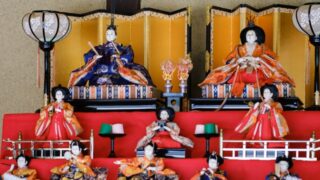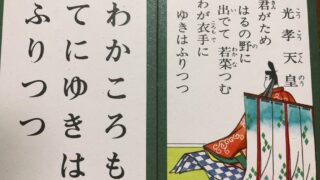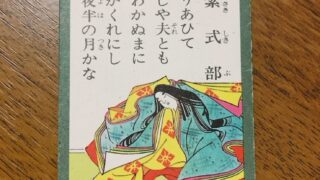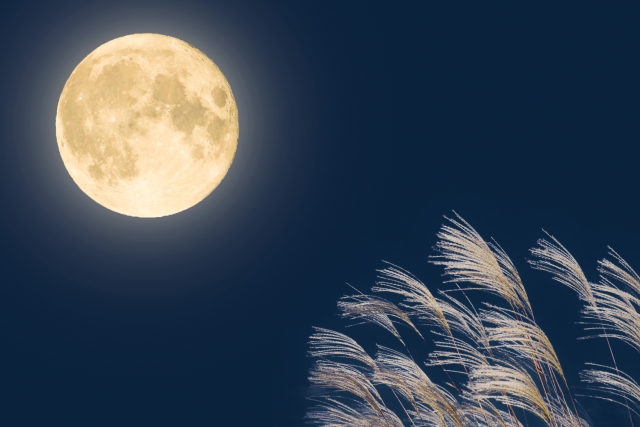秋は月が美しい季節です。今年は9月17日がお月見の日でした。天気がよくて、きれいな月を見ることができました。お月見の日は、旧暦、古いカレンダーの8月15日です。この日は「中秋」という日です。秋のまん中という意味です。その日の月は美しい満月なので、「中秋の名月」とよばれます。中秋の名月を鑑賞する習慣は中国で始まり、多くのアジアの国に広がりました。
今日は月を詠んだ歌を紹介します。
Autumn is the season when the moon is beautiful. This year, September 17 was the day of Moon viewing. The weather was fine and I could see the lovely moon. The Moon viewing day is August 15 on the old calendar, lunar calendar. This day is called “Mid-Autumn.” It means the middle of autumn. The Moon on that day is called the “Mid-Autumn Moon” because it is a beautiful full moon. The custom of appreciating the Mid-Autumn Moon began in China and spread to many Asian countries.
Today, I would like to introduce a poem about the moon.
天の原 ふりさけ見れば 春日なる 三笠の山に いでし月かも
安倍仲麿 (698-770)
百人一首 七番 旅
「古今和歌集」
かな
あまのはら ふりさけみれば かすがなる みかさのやまに いでしつきかも
言葉の意味
| 天の原 | 広い天の空 | The wide open sky |
| ふりさけ見れば | 顔をあげて上を見たら | I lifted my head and looked up |
| 三笠山にいでし月かも | 三笠山に出ている月なのだなあ。 | I wonder if it is the moon on Mt. Mikasa. |
ふりさけ見れば
今の言葉では「仰いでみれば」です。顔をあげて上を見てみたら、という意味です。
In today’s language, it is “look up. It means to lift the head and look up.
春日なる三笠の山
春日にある三笠という山
春日とは、今の奈良県奈良市周辺の地域のことです。鹿が有名で、観光客にも人気のある地域です。その春日にある山のことです。
A mountain called Mikasa in Kasuga
Kasuga is the area around what is now Nara City, Nara Prefecture. The area is famous for deer and popular among tourists. The mountain is located in Kasuga.
現代語訳
空を仰いで見たら、月が出ている。なつかしい春日の三笠山で見たのと同じ月なのだなあ。
I look up at the sky and see the Moon. It is the same moon seen over Mikasa Mountain in my hometown Kasuga.
この歌を詠んだ安倍仲麿は、中国に渡っていました。当時の日本は、中国から技術や法律、文化、仏教を学ぶために、多くの留学生を派遣していました。 安倍仲麿もその一人です。学問に優れ、中国の皇帝に気に入られた安倍仲麻呂は、30年以上中国で過ごした後、日本に帰国することを許されます。その時に詠んだ歌がこの歌です。「きれいな月だ。なつかしい春日の人々も同じ月を眺めているのだろう。」という気持ちを詠んだ歌です。
日本に渡る船が途中で遭難し、安倍仲麿は結局日本に帰ることはできず、一生を中国で過ごしました。違う国に行くことが命がけだった時代の歌です。中国でも多くの人に愛された安倍仲麻呂ですが、故郷を強く思う気持ちが伝わってきます。
Abe Nakamaro, who composed this poem, had gone to China. Japan sent many foreign students to China to learn technology, law, culture, and Buddhism in those days. Abenonakamaro was one of them. He excelled in learning and was favored by the Chinese emperor. The emperor allowed him to return to Japan after spending more than 30 years in China. He composed this poem about his feelings at that time, “It is a beautiful moon. The people of Kasuga must be looking at the same moon.”
The ship that took him to Japan was lost on the way, and he spent the rest of his life in China, unable to return to Japan. This is a poem from a time when going to a different country was a risk to one’s life. Many Chinese people loved him. However, it conveys his strong feelings for his hometown.



